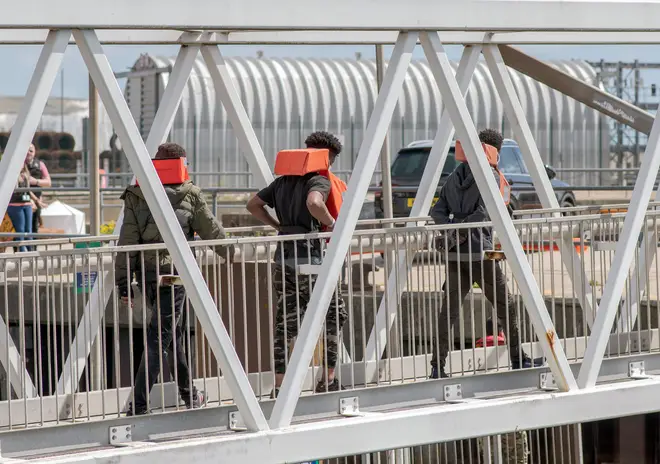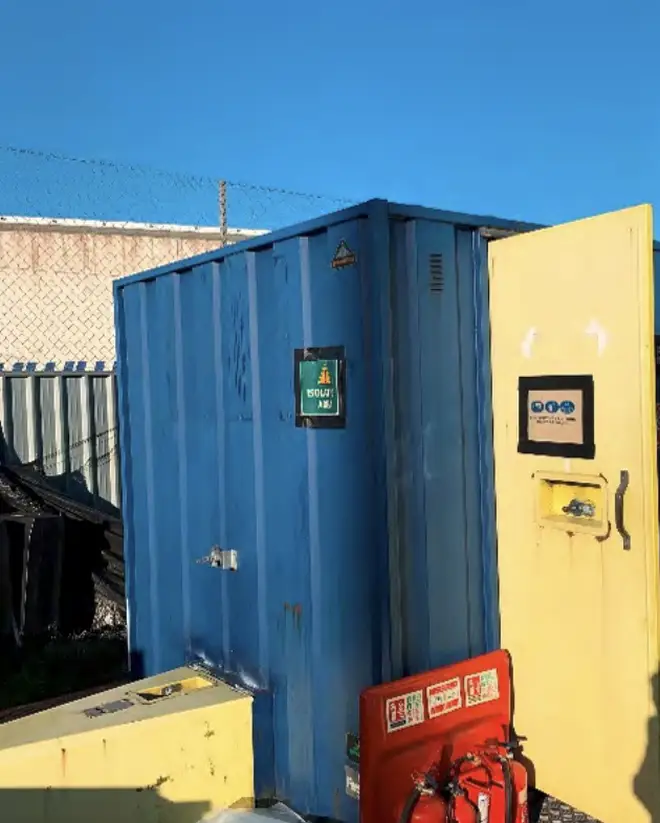
Dom Joly 3pm - 6pm
21 July 2022, 12:49

Hundreds of migrants who crossed the Channel have gone missing from hotels, a report has found.
Details of a “system failure” in the handling of migrants coming to the UK have emerged in a report by the Independent Chief Inspector of Borders and Immigration (ICIBI).
The report found that asylum seekers are being arrested without explanation, questioned without interpreters and made to indicate their age by pointing at cardboard signs.
The watchdog found the Home Office had been ‘both ineffective and inefficient’ and there were gaps in security procedures.
Read more: Half a million Brits set to miss holidays due to passport delays
Read more: Return to 'Thatcherism' as Sunak and Truss battle to win to over Tory members' support

It said the Home Office response was ‘poor’ and ‘overwhelmed’ and that between September 1 and January 10 a total of 227 migrants had absconded from ‘secure’ hotels and were missing.
Chief inspector of borders and immigration David Neal found problems arose mainly due a "refusal" by the department to move from an "emergency response to what has rapidly become steady state, or business as usual", adding: "It is in the gift of ministers and senior officials to deliver an effective response."
The findings are the latest in a wave of critical reports published this week on the Government's response to the migrant crisis.

The Home Office insisted it has already "transformed" how it deals with migrants arriving on the Kent coast since Mr Neal's inspection, and work carried out to address his recommendations for improvement has almost been completed.
In the foreword to his report, published on Thursday, Mr Neal said: "The number of small boat crossings in the Channel has reached such a level that it has been described as a crisis and the number one priority for the Home Office.
"The volume is unprecedented, and on some days the system is clearly overwhelmed.
"The Home Office's performance in delivering an effective and efficient response to the challenge posed by the increasing volume of migrant arrivals via small boats is poor.
"In my judgment, this arises principally from a refusal to transition from an emergency response to what has rapidly become steady state, or business as usual. This refusal permeates every aspect of the Home Office's response.
"Systems, processes and resourcing pathways, which months into the crisis should be routine, codified, auditable and familiar, have been delivered at 'best effort'. This is not good enough.
"Data, the lifeblood of decision-making, is inexcusably awful. Equipment to carry out security checks is often first generation and unreliable.
"Extreme operational conditions, where resources are stretched, will inevitably lead to some degradation in data. Staff on the ground are doing their very best, but they are tired."
Mr Neal previously said he was "frustrated" the much-delayed report had not been published after it was handed to Home Secretary Priti Patel on February 24.
The report made four recommendations which the watchdog urged be delivered within up to three months, meaning the deadline would have been May 24.
Mr Neal added: "Sadly, nothing in this report will come as a surprise to ministers, officials, or the workforce. It is in the gift of ministers and senior officials to deliver an effective response. The workforce can do no more.
"They have responded with enormous fortitude and exceptional personal commitment, which is humbling, and they are quite rightly proud of how they have stepped up.
"This report makes four recommendations and offers the Home Office a timescale to deliver those recommendations.
"More important is the delivery of a strategic approach by the Home Office to regularise their response to small boats, in preparation for increased numbers throughout this year.
"A new model for borders and enforcement is desperately required if our border is to be secured and vulnerability effectively addressed."
The Home Office thanked Mr Neal for the report, adding: "Since the inspection took place, we have transformed how we manage the arrival of migrants making dangerous and unnecessary Channel crossings in small boats. This includes the previously planned closure of Tug Haven and the movement to a two-site operation at Western Jet Foil and Manston.
"We have accepted all the report's recommendations, the majority of which were already being addressed at the time of the inspection, and almost all this work has already been completed."